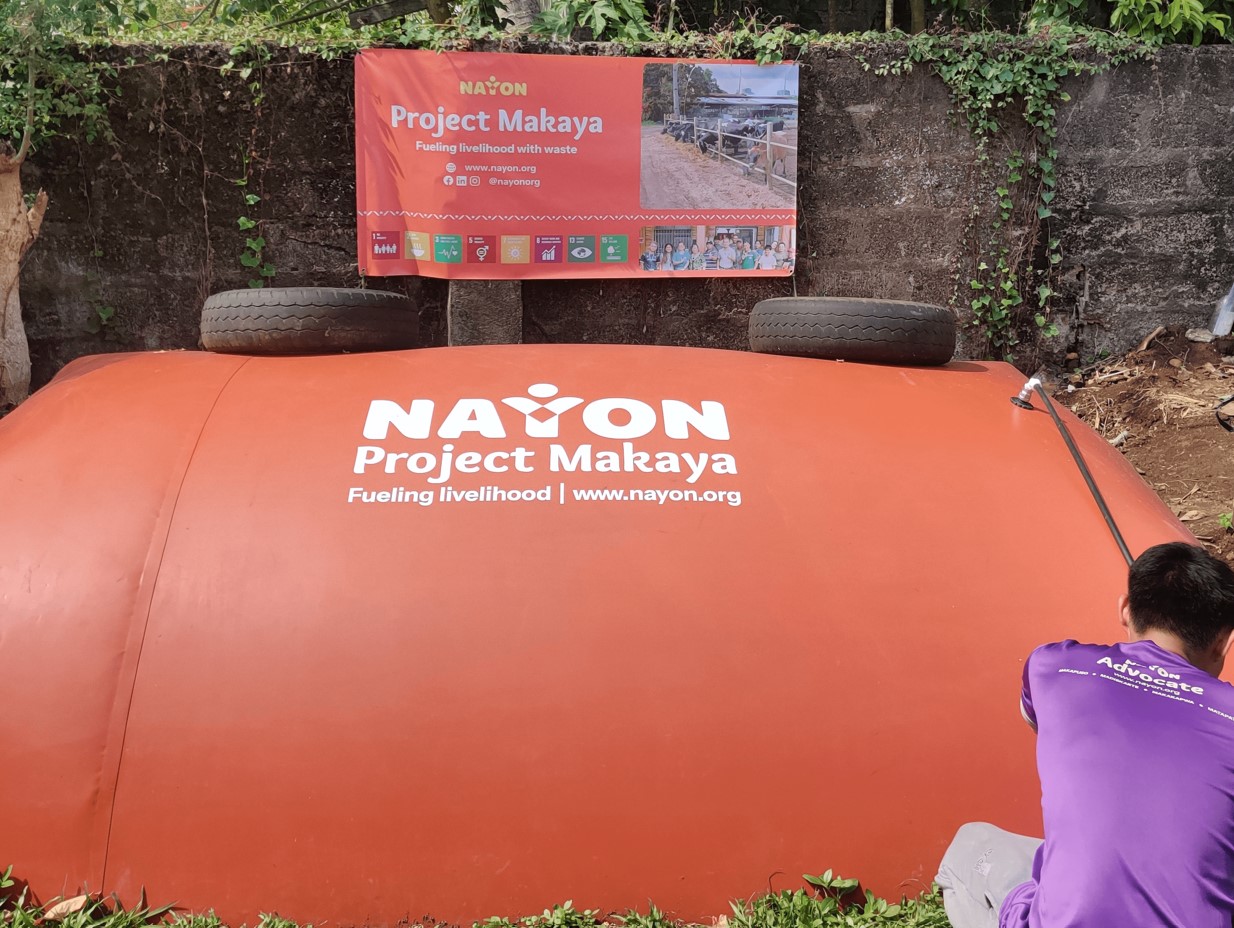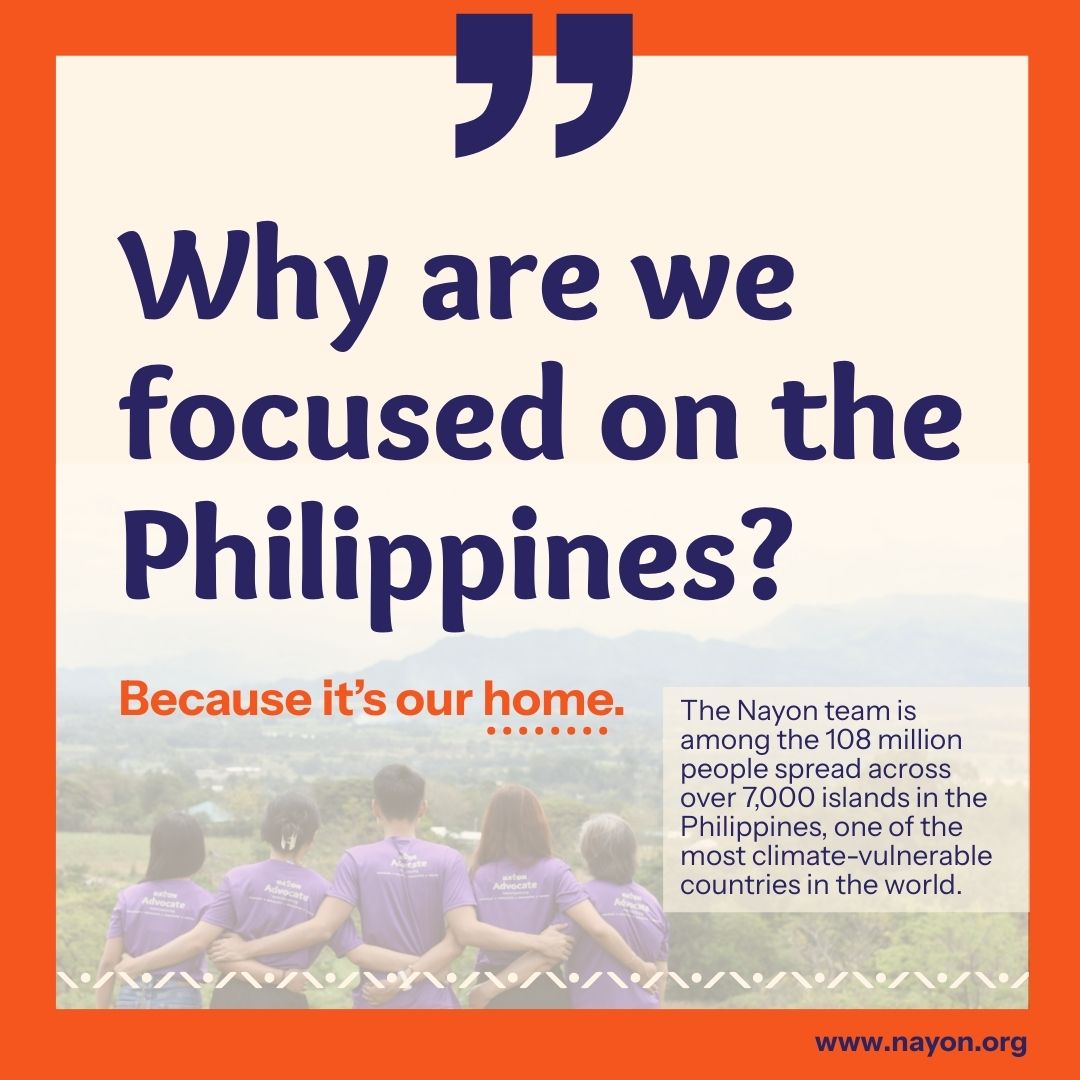PROJECT MAKAYA
Working with farmers creating livelihood with waste
Project Inception: 2025
Standard: Gold Standard
Methodology: Animal Manure Management and Biogas Use for Thermal Energy Generation
Standard: Gold Standard
Methodology: Animal Manure Management and Biogas Use for Thermal Energy Generation
Status: In Development
Farms Target: 45,000
Registration: TBD
Auditor: TBD
First Issuance: 2027
Farms Target: 45,000
Registration: TBD
Auditor: TBD
First Issuance: 2027
Sustainable Development Goals:









BACKGROUND
"Makaya" in Filipino means " to be able to do or accomplish"

We drew inspiration from conversations with our advocates where they shared their experiences in Project Buhay. We often hear:
"Dili hapos, pero gikaya." (It wasn’t easy, but we made it.)
"Lisod pero makaya." (It’s difficult, but we can do it.)
"Mahirap pero kaya namin." (It’s hard, but we will endure.)
"Lisod pero makaya." (It’s difficult, but we can do it.)
"Mahirap pero kaya namin." (It’s hard, but we will endure.)
These words come from farmers, mothers, and community advocates who push forward despite hardships.


problem 1
Abundance of animal waste
Millions of tons of animal waste are produced annually in the Philippines with limited to no manure management systems.
- Manure releases methane, a greenhouse gas over 80x more potent than CO2
- Manure often dumped in rivers and other bodies of water, impacting aquatic ecosystems
- Pathogens spread through manure can be detrimental to livestock and farmer livelihood
solution
Sustainable waste management
- Provides a sustainable waste management system for farmers
- Traps methane being released into the atmosphere
- Reduces animal waste being dumped in bodies of water
- Controls and reduces the spread of pathogens
- Makes a good neighbor by reducing odors up to 80%
problem 2
Soil Degradation
Soil Degradation is a major environmental threat facing the Philippines’ agricultural sector, with about 70% of the country’s land area affected by soil acidification and declining fertility.
- Agricultural Practices: Conventional farming with staple monoculture crops such as bananas, pineapples and sugar cane rapidly remove essential nutrients like calcium, and magnesium which act as a buffer against acidification.
- Nitrogen Fertilizers: Reliance on chemical fertilizers results in excess nitrogen leaching into soil and groundwater aquifer increasing soil acidity and contaminating sources of water.
- Loss of Organic Matter: Natural and agricultural practices are reducing organic matter found in soil which is vital for the supply of nutrients, water retention, and soil structure.
solution
Biodigester Slurry
- Contains organic matter and beneficial organisms which improves soil structure and health, enhancing water retention, reducing erosion, and preserving nutrients.
- Replenishes essential nutrients like nitrogen, phosphorus, and potassium, which restores fertility for plants to grow.
What does this mean?
- Increases crop yields up to 30-40%
- Reduces the need and costs of chemical fertilizers
problem 3
Inefficient & Unhealthy Cooking Practices
Major environmental threat facing the Philippines’ agricultural sector, with about 70% of the country’s land area affected by soil acidification and declining fertility.
Health:
- Indoor air pollution such as PM2.5* is the 4th largest health risk globally, with over 4 million deaths each year
- Open fires are dangerous, leading to burns, accidental fires, and scalding, especially in homes with small children
- The Philippines ranks among the highest in Asia-Pacific for deaths due to household air pollution at 8.4 deaths per 10,000 people
*Particulate Matter (PM) is a type of air pollutant that's extremely small and harmful to human health. It's made up of particles that are less than 2.5 micrometers in diameter which can travel into the deeper parts of the lung and body.
Environment:
Environment:
- Burning wood releases significant amounts of carbon dioxide and contributes to deforestation and the depletion of natural resources in rural areas
- Traditional cooking methods are highly inefficient, with up to 90% of the heat energy being wasted
Gender:
- Foraging long distances to collect wood exposes women and girls to the risk of harassment or assault
- Women and children under 5 years old, who spend the most time near cooking fires, are the most affected by the associated health risks
- Women and girls are disproportionately responsible for gathering fuel and cooking, reinforcing gender inequalities and limiting their opportunities for education or economic participation
solution
Renewable energy source
- Creates a renewable, free energy source for cooking
- Eliminates need for gathering and burning woodfuel
- Significant reduction in risks associated with PM2.5
- Biogas fire is safer, easier and quicker for cooking
problem 4
Limited Access to Sanitation Systems
Lack of Infrastructure:
- ~20 million people in the Philippines still practice open defecation, posing a risk to human health and the environment.
- Many rural communities lack basic sanitation infrastructure like toilets and latrines.
Health Consequences:
- Poor sanitation is linked to a range of waterborne diseases, including cholera, diarrhea, dysentery, and typhoid, which can lead to sickness and mortality, especially among children.
solution
Toilet system
Our biodigesters provide a simple, cost-effective solution for household sanitation by connecting easily to compatible toilet systems—eliminating the need for expensive septic tanks. Designed for quick installation, they offer an affordable way to improve family health and hygiene.

How it Works

Features


15-20 year
lifespan


Balloon style
for easy installation at site


Modular design
allows for adding components or expanding capacity


Low maintenance
Replaceable with parts sourced locally
Sustainable Development Goals

TRANSPARENCY
How we manage our projects
Engagement and Selection Process
Interconnected Approach
Farm Focus
Equipment and Training Cost
Registration and Eligibility Confirmation
Off-site Training
Site Preparation
Initial Setup
Site Inspection and Troubleshooting
Annual Monitoring
Independent Audit
Local Employment
In-house Technology
Creating a local ecosystem of opportunity: A biodigester marketplace

Ongoing Maintenance
Stove replacements, gas-cleaning pellets, tubes & parts — all locally supplied and serviced

Add-on Sales
Our biodigester systems are ready to add equipment such as toilets, water heaters, and electrical generators which be sold and installed locally

Organic Fertilizer Sales
Turning biodigester byproduct into income for farmers and agri-entrepreneurs

Let's Chat
We love forging new partnerships. If you’re interested in learning more about our projects, supporting our mission by purchasing carbon credits or exploring collaboration opportunities, we want to hear from you.

.jpg)





